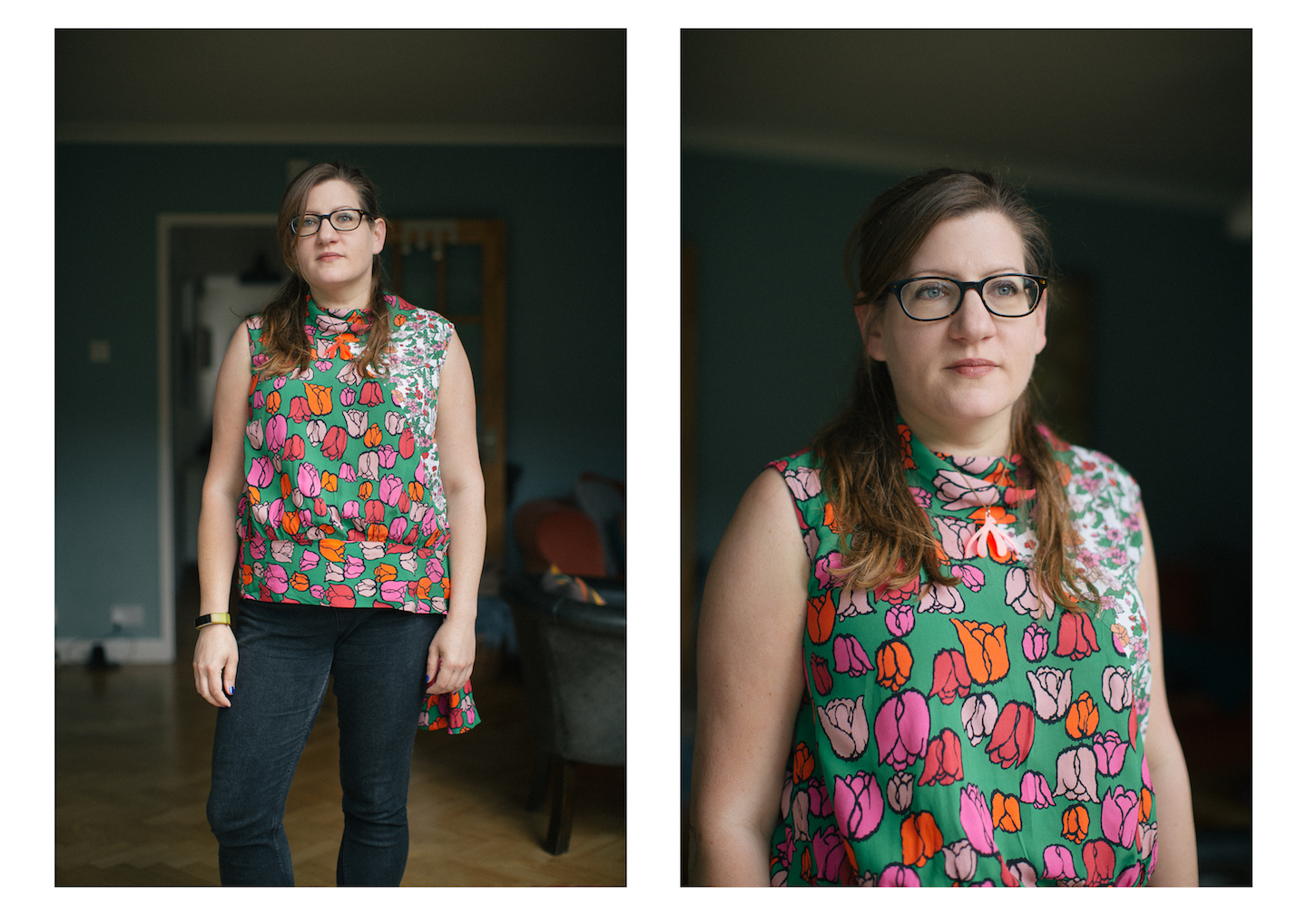Europe is a union, but it’s also a messy collection of countries with their own laws, languages, values, drug policies, minimum wages, national liquors and dad jokes. Life can be dramatically different depending on which side of a border you grow up – even within the EU. This week, VICE.com features stories that show how national borders dividing and surrounding Europe affect the lives of the people living near them.
Northern Ireland has been without a sitting government for well over 900 days.
Videos by VICE
A primer, for those who need it: the country has been in this state since the 16th of January, 2017, when the late leader of Sinn Féin, Martin McGuinness, resigned over a renewable heat incentive scandal. Since then, the DUP and Sinn Féin – the two strongest parties in the Northern Irish parliament – have been unable to agree on a deal to move forward and resume their seats.
At the same time, Brexit could potentially damage peace on the island. Following decades of conflict, relations between Northern Ireland and the Republic of Ireland were normalised by the Good Friday Agreement of 1998, which includes arrangements on movement of people across the border. The UK leaving the EU threatens both this soft border and the peace deal reached in 1998.
As Prime Minister, Boris Johnson has promised to ensure the UK leaves the EU by the 31st of October, 2019 – but, unsurprisingly, there’s still little clarity on how exactly he plans to do this, especially when it comes to the tricky issue of the Irish border.
Caught in the midst of this political mess is a group of people who will be directly affected by the future policing of the border, but who have so far barely been acknowledged. What will Brexit mean for Irish women currently travelling to Britain for an abortion?
Legally-sanctioned abortion in Ireland only became accessible in 2018, when a referendum was held in the Republic of Ireland to repeal the ban. For the first time in the country’s history, it became legal to terminate pregnancies up to 12 weeks on request. Before that, having an abortion was illegal on both sides of the Irish border. In fact, even though abortion has been decriminalised in most of the UK for decades, Northern Ireland was allowed to keep pregnancy termination illegal because the matter was considered up to local parliaments.
That is, until last month, when Members of Parliament in the House of Commons – led by Labour MP Stella Creasy – voted to extend marriage equality and access to abortion to Northern Ireland for the first time. But the bill can’t be enshrined in law immediately; if the Northern Irish government isn’t out of its political impasse by the deadline of the 21st of October this year, the British government will start legislating on the issue, and abortions in Northern Ireland might be decriminalised.

For decades, Irish women have been travelling to the UK to seek safe abortions. Until the year 2000 they were supported by The Irish Women’s Abortion Group, originally set up by Anne Rossiter – a writer, campaigner and author now in her seventies, who told me she set about helping other women in need after having a backstreet abortion in the 1970s. “Women have always supported each other,” she explained.
Rossiter didn’t want others to have to go through the trauma she had experienced, and wanted to accommodate women visiting Britain for the procedure. She said that, over the years, she’s had hundreds of Irish women staying with her. In the 1990s they started coming to London on low-cost flights; as Rossiter explained, Ryanair CEO Michael O’Leary was a hero for many abortion rights campaigners, as the early morning flight from Dublin to London often carried a number of women seeking an abortion. “You start to spot them once you know,” she said.
Since low-cost flights and the economic boom in Ireland in the late 1990s had made it so much easier for women to travel, The Irish Women’s Abortion Group was shut down in 2000. But following the economic crash in 2008, the number of women needing support was on the rise again – which was noticed by activist Mara Clarke, who founded the Abortion Support Network (ASN) in 2009.
Clarke had first helped women seeking abortions when she was living in New York, where she housed people who needed somewhere to recover overnight in her studio apartment. After moving to London in 2005 she saw the same urgency among Irish women, so she started ASN to offer them financial support and safe accommodation.

The 2018 referendum represented a momentous victory for women in the Republic, not just in and of itself, but because it challenged the patriarchal Catholic authorities that played a crucial role in the foundation of an independent Ireland.
Clarke explained to me that ASN has seen a small decrease in the number of people contacting the network since the ban’s repeal. Another positive change is that when Irish women call the helpline these days, she said, “they are often much less apologetic than they used to be, more confident and more direct in stating their need for help”. However, while calls to ASN are decreasing, the amount of money that women seeking help require is not: the charity gave more than £90,000 in grants in 2018.
According to the UK Department of Health, a total of 4,633 women from different nationalities came to the UK for abortions in 2017. Sixty-one percent of them were from Ireland, and 22 percent from Northern Ireland. Since the Irish abortion referendum last year there’s been a slight change in the numbers. As the 2018 report suggests, 213 fewer women travelled for abortions from the Republic of Ireland – but at the same time, 192 more Northern Irish women did the same in 2018 compared to the previous year.
The main reason women still fly across the Irish sea has to do with timing. Many women don’t know they’re pregnant in the first few weeks – and when they do, the process in Ireland can take so long that, by the time they’re granted an abortion, it can be well past the legal deadline of 12 weeks. In Britain, you can have an abortion up to 24 weeks into a pregnancy.
Clarke told me that many women who contact ASN are older, often already have children and think they’re no longer able to get pregnant. Many believe they’re entering menopause, and find out about their pregnancy too late to make the decision to terminate it in Ireland. It’s also common for women in abusive relationships or victims of reproductive coercion to find themselves in this situation. Some of these women are under strict scrutiny and control, and unable to get to a GP. In these cases, much of Clarke’s work consists of helping them find escape strategies so they can get to England undetected, have an abortion and get back to Ireland before anyone notices they’re gone.
Many of Clarke’s clients also come from Direct Provision centres – the Irish government’s response to a surge of asylum applications in 1999. These “accommodation centres” house asylum seekers waiting to be processed, often for years. ASN supports them, as well as undocumented women in Ireland.
Clarke explained that, in these cases, the process is more complicated, as these women not only need a visa to get in and out of Ireland, but also to get in and out of the UK. Obtaining visas has become much harder since the Brexit referendum, as rules at the Home Office have tightened. Clarke explained that ASN is not political and does not participate in campaigning, but she is vocal about how Britain leaving the EU could affect these vulnerable women.
After the referendum in Ireland, it was to be expected that most Northern Irish women would just drive south into the Republic for their abortion, instead of making the journey by boat or plane to Britain. But according to the Department of Health’s data, that’s not been the case.
A likely reason for this is that the process in the Republic of Ireland is still fairly difficult. Women need to attend a minimum of two GP appointments and pay for the visits, the abortion drugs and travel. That can make the overall sum for terminating a pregnancy upwards of €400 (£365). As a result, it’s cheaper and more time-effective to get a budget airline flight to England and, with the help of ASN, access free accommodation and healthcare services there.
Britain is currently only one of three countries in Europe that offers abortions after 14 weeks on request. Sweden goes to 18 weeks and The Netherlands to 22 weeks – but the latter has only two medical clinics which would potentially carry out the procedure on non-residents. That makes Britain one of the most important countries for women in Europe in need of a later abortion. Exiting the EU could have major ramifications for not only Irish women, but women across Europe – especially those from less privileged backgrounds, or with non-EU passports.

On International Women’s Day this year, protesters from both sides of the Irish border united in Belfast, where they marched together for their human rights and the freedom of choice over their own bodies. One of those protesters was Siobhan Shiels, who canvases on both sides of the border as part of Abortion Rights Campaign. She also led a group of women from Donegal, in the Republic of Ireland, all the way to Belfast, in Northern Ireland, to raise awareness and support for campaigners in the North who are fighting on the ground for legalisation.
Shiels told me how Alliance for Choice came south to the Republic to support them during the campaign before the referendum, and that they were now doing the same for women in the North.
“We’re going to drag Northern Ireland out of this archaic time, just as we did the south – and we’re doing it together. I don’t see a hard border stopping us supporting one another,” she told me.
When I call Shiels to hear her thoughts about the recent vote in Parliament to extend abortion decriminalisation to Northern Ireland, she sounds ecstatic. “This is the only way that the North is going to receive their rights, since the devolved [Northern Irish] government has been keeping everyone in the dark ages,” she tells me.
When I contact Rossiter about the recent vote on Northern Ireland, she tells me she never thought she’d live to see abortion accessible in her lifetime. But she’s still very worried about what Brexit and the current global rise of nationalism could do to women’s rights. She cites the abortion ban in the US state of Georgia, and the power that the staunchly anti-abortion Northern Irish party the DUP have currently been given at Westminster, in return for securing a Conservative party majority. She thinks the rise of far-right parties like Lega Nord in Italy and VOX in Spain, among others, could threaten the freedoms Europeans have grown used to since World War II – partly thanks to the founding of the European Union.
One of the freedoms most likely to be undermined is the freedom of movement – which is already set to end between the UK and the EU under Johnson’s Brexit later this autumn. As women in Ireland and Northern Ireland can attest to, that freedom is of vital importance for people living in countries with restrictive anti-abortion policies. What’s becoming more and more apparent is how much Brexit is set to impact vulnerable women seeking abortions.
Don’t miss the next issue of VICE Magazine later this month, dedicated to the global exploration of borders, investigating why we’ve imbued them with so much power, and what happens when those lines aren’t visible to the naked eye.
Update: Am earlier version of this article misidentified the grassroots movement Alliance for Choice as the political Alliance party.
More
From VICE
-

Photo by Miriam Espacio on Pexe -

-

Images by WWE / Collage by Haley Miller -

XNY/Star Max/GC Images
